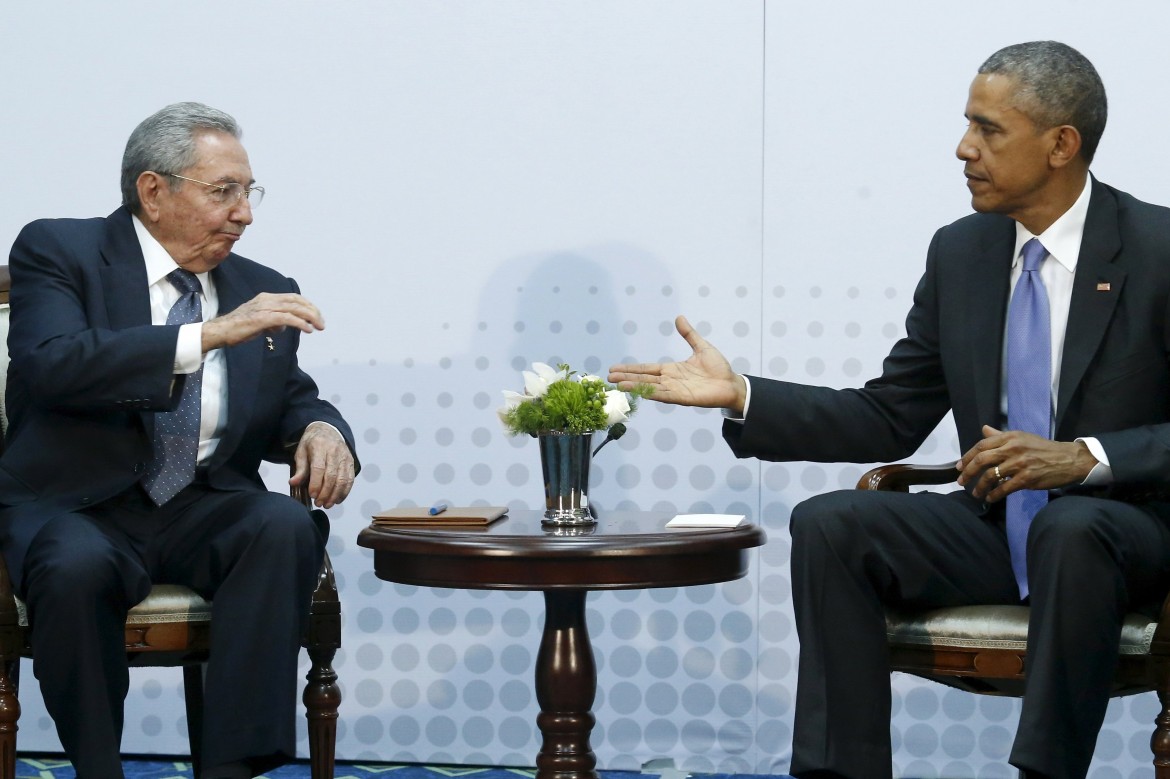Cuba
Cuba growing impatient over embargo
As Obama talks of “a long journey” to normalization, the Communist Party newspaper Granma wrote, “A year later, the blockade is still standing.”

Celebrating the anniversary of the détente with Cuba, President Barack Obama again called on the U.S. Congress to “support a better life for the Cuban people by lifting an embargo that is a legacy of a failed policy.”
“Change does not happen overnight, and normalization will be a long journey,” he said, but the results of the first 12 months indicate how much the U.S. can help improve the lives of Cubans. For this reason, concludes the statement issued Friday by the White House, “over the next year, we will continue on this path.”
In Havana, the tone of the celebration has been more modest, if not controversial. President Raul Castro has not made any statement yet. But yesterday, Granma, the newspaper of the Communist Party, published a special issue dedicated to the anniversary of the “historic declaration” of normalized relations under the headline: “A year later, the blockade is still standing.”
The Cuban government has asked the U.S. president “to expand decisively” the measures designed to ease the embargo, since those already implemented “although positive, have limited effects, and there has been no further progress” in negotiations. Therefore, the Cuban government, while appreciating the policy change promoted by Obama, reminded the president that if they “want to make progress” in negotiations, he cannot dump all the responsibility on a Congress with a clear Republican majority. Granma pointed out that Obama has “wide executive powers” that allow him “to turn the application of the embargo against Cuba and reduce it to an empty box.”
The difference in tone is evident also in reference to Obama’s statement that he’s prepared to travel to Cuba next year, provided he can meet with those organizations opposed to the government of Raul Castro. Again, the Cuban leader left the task of responding to a subordinate, Josefina Vidal, head of the negotiating delegation with the U.S. “If he wants to come to Cuba he will be well received,” as long as he does not interfere “in internal political affairs.” On a Cuban newscast Thursday, two commentators said “even though the methods are different, the [White House’s] goal remains the same.” That is, promoting a change of government to put an end to Cuban socialism.
For some analysts, such as former Cuban diplomat Carlos Alzugaray, positions like those are just a “facade.” The government in Havana is concerned that time is against it: Because the normalization is an Obama administration strategy, and because he has only one year left in office, there is a risk that “a new president with a different position could backtrack.” That hypothesis is not farfetched, given the sharp shift to the right that is occurring in the presidential campaign and involves even Hillary Clinton, who could retract her statements in favor of the embargo.
So, for Alzugaray, the important thing is “to advance and demonstrate that we are able to negotiate and reach agreements about everything that is in our interest.” This position is shared by former U.S. Congressman Bill Delahunt, who has been involved in a policy of détente with Cuba for a long time. In his opinion, as negotiations advance, “more loopholes open” in the embargo’s legislation (Helms-Burton) and you can transform “American businesspeople [interested to be present in Cuba] into our allies.”
“We must be realistic, and ask which way is the normalization process going, how far has it gone, and especially who, among the Cubans, have benefited so far,” says the analyst López Oliva. The most significant change in economic terms since last year has been the elimination of the limit of remittances by Cuban-Americans and increase in North American tourists (up 57 percent), which represented a growth of revenue in foreign currencies mainly for the Cuban government and , though it is difficult to quantify, for the new cuentapropista (private) sector connected to the tourism business.
Therefore, Obama’s strategy has had a tangible result for a sector — however small — of Cuban society. Instead the economic reforms promoted the government of Raul Castro and aimed at creating a “prosperous and sustainable socialism” — as some independent economists pointed out — “have failed to materialize in practice or have not had the results planned and hoped for.” And even the new foreign investment law — essential in a country with such a low rate of domestic investment and in obvious technological delay — is not generating the desired results.
In recent days, Cuba reached an agreement with the Paris Club to write off its foreign debt and thereby encourage the increase of foreign investment. But the results will not be quick, with the risk that “the only hope for an economic breath of fresh air can only come from the United States,” says an “independent” economist.
For the ordinary citizen, therefore, from the economic point of view little or nothing has changed. Sure, there is the détente with the United States, the stars and stripes flag is waving in the Malecón, and new wifi internet access points — that help to break the feeling of isolation — have a psychological effect. But, with time, it has faded. “I have many hopes but also many doubts,” is a motto heard often in the streets of Havana. Especially in a period in which merchandise is scarce and prices rise much faster than wages.
The most visible and worrying effect of this economic crisis is the growing number of Cubans — especially young people — who leave the country to try to reach the United States, where the law of the Cuban Adjustment Act (included in the embargo) ensures them residence status upon arrival.
Originally published at http://ilmanifesto.info/obama-se-vuoi-la-fine-dellembargo-agisci/ on 2015-12-19
